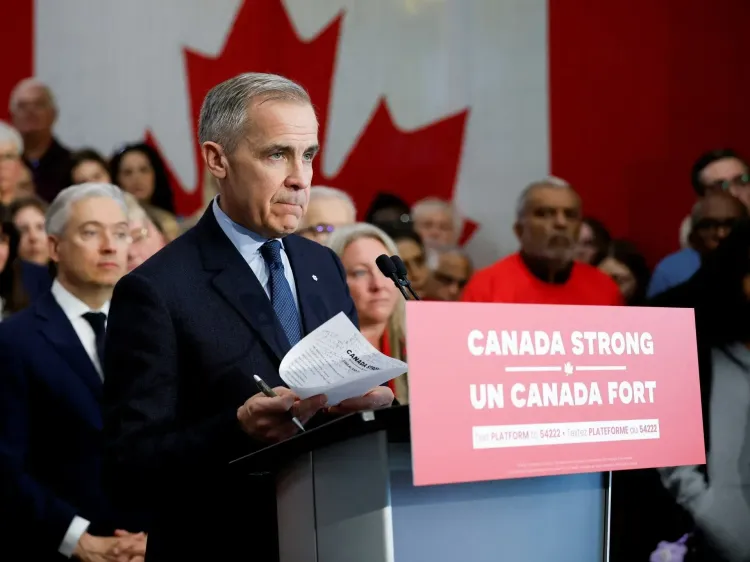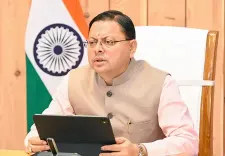Are Canadians Voting in a Crucial Election Amid Trump's Influence?

Synopsis
Key Takeaways
- Canadians are voting amid significant geopolitical tensions.
- The Liberal Party has regained a lead in polls.
- The NDP is projected to face substantial losses.
- Mark Carney aims to improve Canada-India relations.
- Trump's policies are influencing Canadian voter sentiment.
Ottawa, April 28 (NationPress) Canadians commenced their voting on Monday in a significant election influenced by the tariff conflict initiated by U.S. President Donald Trump, alongside annexation threats.
The ruling Liberal Party has seen a remarkable surge in support, now leading the Conservative Party by nearly 3 percent in overall polling, a significant turnaround from the 23 percent deficit they faced during Trump's inauguration when Justin Trudeau was still Prime Minister.
According to the Canada Broadcasting Corporation's aggregation of polls, the Liberals are at 42.8 percent, compared to the Conservatives' 39.2 percent, with the New Democrats (NDP) trailing at 8.1 percent.
Despite a slim lead in polls, the seat projections for the 338-member House of Commons indicate a comfortable margin for the Liberals, with an anticipated 180 seats versus 125 seats for the Conservatives.
Out of over 28 million registered voters in Canada, 7.3 million had participated in early voting as of last Monday.
The first results are expected to emerge on Monday night, as polling stations begin to report their counted paper ballots.
Crucially, the NDP, led by Jagmeet Singh, is projected to face significant losses, possibly securing fewer than 10 seats. Singh, who previously held 24 seats, played a key role in supporting Trudeau's administration despite the Liberals lacking a majority with 152 seats.
In January, the NDP enjoyed 17.4 percent support, which has since plummeted to 8.1 percent, largely due to Trump's polarizing impact on voters, rendering Singh less relevant.
Relations between Canada and India deteriorated under Trudeau, who was perceived as lenient towards Khalistani sympathizers, influenced by Singh.
Should the projections hold, Mark Carney, who has been elected by the Liberals to succeed Trudeau, is set to continue as Prime Minister, expressing a desire to reset relations with India.
“The Canada-India relationship is incredibly important across multiple dimensions,” Carney emphasized, particularly in terms of the economy.
“Given the current upheaval in the global economy and system, countries like Canada and India can play a significant role in fostering an open, interconnected economy and shared ideas,” he added.
Carney, a seasoned technocrat who has previously led the national banks of Canada and Britain, is viewed as well-equipped to navigate Trump's tariff challenges.
On the other hand, Conservative leader Pierre Poilievre appeared to gain momentum towards the end of Trudeau's tenure, but his policies, which mirrored some of Trump's, have backfired due to the U.S. President's tariff increases on numerous Canadian goods and his ambitions regarding annexation.
Poilievre criticized Trudeau for the deteriorating relations with India, stating, “His incompetence has led us to major disputes with nearly every significant global power, including India.”
During the campaign, an attempt was made to discredit Poilievre by suggesting that India interfered in the 2022 Conservative Party's internal elections to promote his candidacy. He refuted these claims, stating, “Let’s be honest, I won the leadership fair and square.”
He further asserted that even his political opponents have “publicly testified under oath” to the legitimacy of his election.
According to Canada338, a polling and projection outlet, the Liberals are expected to secure 186 seats, while the Conservatives are projected to receive 124 seats and the NDP around 9 seats. Meanwhile, the Canada Broadcasting Corporation forecasts 189 seats for the Liberals, 125 for the Conservatives, and 5 for the NDP.










